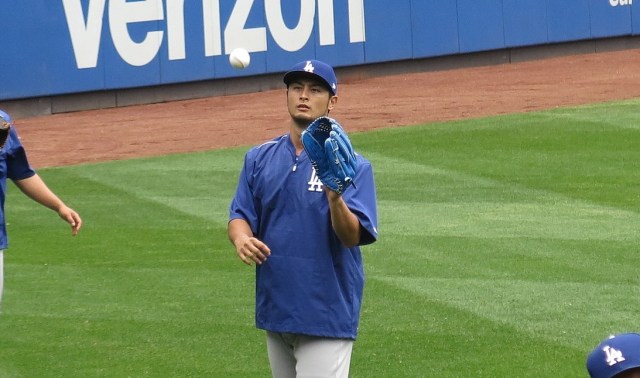
And now a lesson in Internet civility from the American League strike-out leader of 2013.
The release of Jumpei Yasuda as a hostage of a Syrian militant group has been dominating Japanese media recently and drawing a lot of controversy over the act of going into dangerous areas without permission. At the core of Yasuda’s detractors is the concept of jiko sekinin which translates to “self-responsibility,” but is more like the attitude of “you made your own bed, so lie in it,” “don’t do the crime unless you’re prepared to do the time,” and “buyer beware” all crystallized in a single term.
It’s a cold view of the world in many cases, but it has a wide reach in Japanese culture, and in this case jiko sekinin means “don’t waltz into a hostile country when we told you not to and expect help when you get in trouble.” It’s a sentiment that has manifested its online with comments of “get bent jackass” interspersed with “thank god he’s safe!” in near equal measure.
For those new to the story, Yasuda is a freelance journalist who specializes in Middle Eastern conflicts. However, he also has been kidnapped twice in doing so. The circumstances surrounding his work in the area, captures, and releases are very unclear leading many to speculate (sometimes wildly) on what actually happens during his trips.
Regardless of the details, one aspect of the events that rubs people the wrong way is Yasuda’s apparent ungratefulness towards the Japanese government for being returned.
The following are some tweets Yasuda made in 2015, about a decade after being released from Iraq and only a few months before disappearing in Syria. In them, he essentially denounces the concept of jiko sekinin as B.S. and suggests people worry less about his misadventures and focus more on the government that was trying to deny him his freedom to go into these places.
▼ (Tweet translations below)
“A lot of people who want to ask me about jiko sekinin should first explain to me what it means to them. The jiko sekinin that people speak so specifically about isn’t even an established concept. Because of this I used to try imagine what it was and speak about it, but not any more. By the way, I don’t deny there is jiko sekinin either.”
“Those who are saying I deserve what I got for going into a warzone without permission should also criticize the government who are trying to prevent me from going by taking away my passport and harassing my family and work and should tell them they have no place interfering with my jiko sekinin.”
Considering this very same government has presumably bailed him out on a second occasion. A lot of heat has been directed toward him with the gist of, “we told you so, jerk.” The thrust of their argument being, good intentions aside, by going over there he takes the liberty of putting his entire nation in a compromising situation while also taking up its time and resources, all for seemingly little gain.
But then suddenly out of left field comes Major League pitcher Yu Darvish to speak out in Yasuda’s defense.
▼ (Tweet translations below)
“A life was saved, so personally I think it’s great. There’s a lot of talk about jiko sekinin everywhere, but even when you complain, that sense of jiko sekinin comes from your own inability to do anything about it. Everyone lives and struggles with an inability to do one thing or another. But I think we should just try to help each other as much as possible.”
“I’d like all the people saying, ‘If you go to a dangerous place and get captured, you get what you asked for!’ to please go read up on what happened in Rwanda. Then you can understand what happens when no one goes to help. The movie Shooting Dogs (Beyond the Gates) makes it easy to understand, but please be careful because it’s graphically violent.”
In that, Darvish sums up the situation rather elegantly. When you take away all the jiko sekinin, conspiracy theories, and issues of etiquette and look at the situation at face value: no one died and attention has been given to an area that desperately needs it. So rather than point the finger at others over the incident, perhaps we should take this opportunity to learn from it.
In other tweets, Darvish says to those claiming Yasuda was ill-prepared that there is no perfect way to avoid to risk, otherwise it wouldn’t be “risk.” He then goes on to attack Internet-critics in general with the simple fact that: “Repentance and reflection are processes people need to go through on their own. I don’t think anyone can force you into doing it.”
I think that may have also been a reference to his own dealings with angry Dodgers fans after his 2017 World Series loss, and then again with angry Cubs fans after his season-ending injury this year. However, in both incidents he dealt with them through clear-headed, self-reflective statements that in some cases even resulted in apologies from a few reformed critics — a true rarity for the Internet!
So perhaps, in these chaotic times we find ourselves, we all should take a cue from the former Nippon-Ham Fighter, and put things in perspective before berating people and things online because of our own personal ideologies… except when it comes to the Plastic Bottle Bottom Cap. That thing deserves no quarter.
Source: Twitter/@faridyu
Top image: Wikipedia/
[ Read in Japanese ]